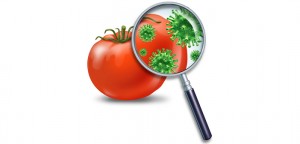
Food safety has many ingredients. Robust biological science on food hazards is one. Supply chain integrity is another.
Food safety has many ingredients. Robust biological science on food hazards is one. Supply chain integrity is another.
The latter refers to food producers and suppliers having the practices and the information systems they require to properly ensure that quality and safety are never undermined as food – processed, fresh or any other form – makes its journey to your dinner table or fridge.
‘Integrity’ is the right word because the necessary practices and systems must span the entire supply chain – and food safety must never just be given lip service. Indeed, integrity of this kind demands that producers and suppliers arm themselves with the capacity to rapidly identify and pull back any food that is unsafe for consumers. In short, they must have supply chain traceability that is real, comprehensive and action-able.
If food or food ingredients are contaminated, it is just as important to know the source and current location of the items and substances in question as it is to know the biological facts of the contamination. Supply chain integrity plainly has a critical role in New Zealand’s food safety system.
On this, the nation has had two huge wake-up calls in recent times. First, the 38 tonnes of the Whey Protein Concentrate (WPC) in our dairy export supply chain that fell under suspicion of contamination with a botulinum micro-organism in mid 2013. Second, the scores of consumers made sick last year after eating supermarket-bought fresh vegetables contaminated with the bacteria, Yersinia. In both cases, existing traceability systems were found wanting and of course, the WPC scare has become a lightning rod for regulatory reform on food safety.
We are coming to terms with the fact that New Zealand is not in the world-best category on food traceability – and that our existing systems rely a little too much on good old “she’ll be right” optimism.
That contrasts sharply with an ever increasing demand in the global marketplace for food to be safe and for safety to be backed up by real traceability. Consumers, export customers and regulators expect that any food safety problem will be identified and rectified as part of supply chain functioning every day, at minimum risk to them.
Happily – and thanks largely to the WPC contamination scare – New Zealand is starting to make strides in that direction.
The Food Act 2014 will task every food business with meeting new food safety practice standards. On top of these, we await new traceability regulations that will require information sharing and reporting from next March. (Government proposals, due in July, will spell out the specifics and the breadth of industry coverage).
And then there is the new Food Safety Science and Research Centre – the government’s initiative to strengthen our food safety system with deeper knowledge across a range of related fields.
The centre will promote and coordinate research not only into food safety hazards (biological, physical etc) but also into “risk assessment, risk management and risk communication of public good food safety issues”. A broad mandate indeed – and one that seems to recognise the merits of New Zealand taking a more scientific approach to supply chain issues as these impact on food quality and safety.
If they are to be truly effective, traceability systems must be designed to provide close attention to how food is processed, stored, distributed and so on. Longer, more complex supply chains require greater rigor in system design and adoption of the most suitable information technologies. Traceability has its own field of specialist knowledge and critical thinking!
The Massey University-hosted centre recently held a workshop of interested parties to gather up research themes. Pleasingly, supply chain integrity has been included among these. Further deliberation will go into deciding the centre’s priorities for contributing greater knowledge to New Zealand’s food safety system. However, interim director Professor Nigel French says issues around data integrity, information analysis and database interoperability are sure to become part of the centre’s work programme at some stage.
This is a big year for strengthening New Zealand’s system, through various regulatory and research initiatives. And all the signs indicate that we are rapidly moving away from the “’she’ll be right’ bias of our past.




























































































